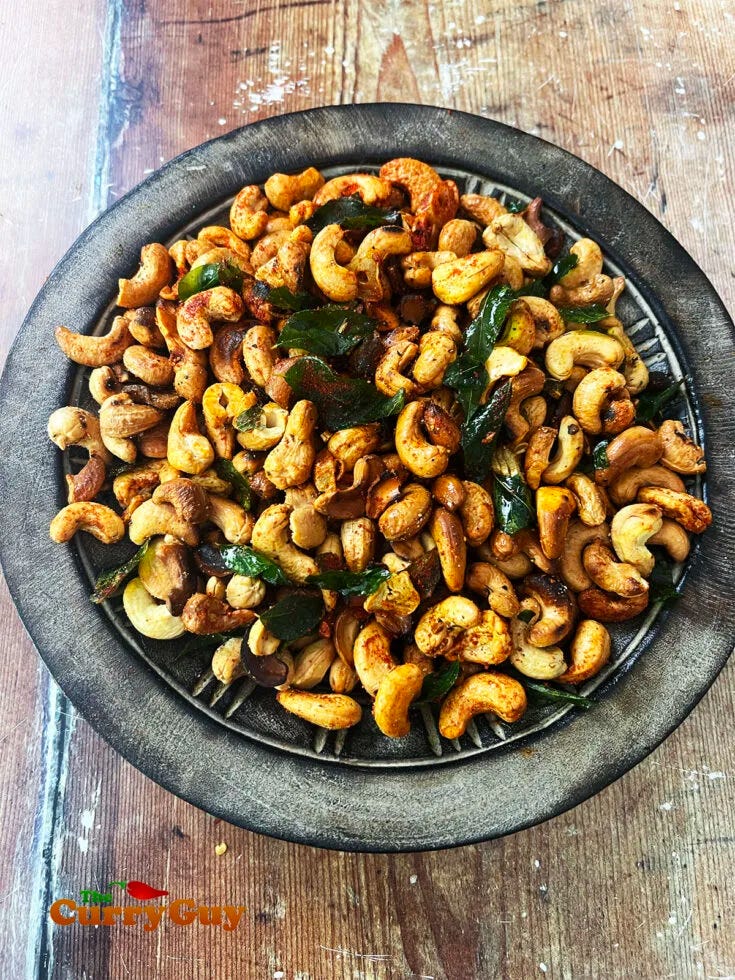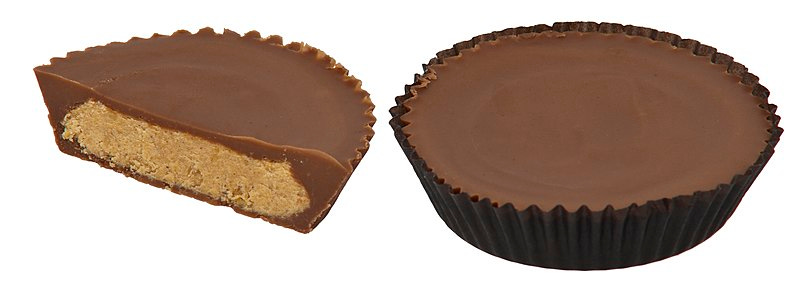
Could the supermarket products people elected to hoard during COVID reveal national character? What tumbled off British shelves were flour and loo rolls. The nation had taken to baking, and an excess of cakes and cookies, low in fibre, can lead to blockages of the kind a Brit finds mortifying. They also stocked up on canned beans, meats and soups - and Asian ingredients. The French used their escape outdoors to line up for baguettes - and, je ne vous kid pas, chicken sausages. You may have assumed the Italians went for pasta. No, that was the Brits. (Another reason for their high demand for loo paper?) The Italians stockpiled dried beans and pulses. And, weirdly, packaged mandarins. I can't remember ever being served fruit in Italy. Getting fed a raw vegetable, beyond the avocado and tomatoes in a Tricolore salad, is another challenge, unless you’re travelling in puntarelle and treviso season.
Perhaps the most revealing statistic (from a survey in Politico) is what Americans elected to stash away. Of the top ten items listed, only Powdered Milk at No.7 could possibly qualify as a foodstuff. Everything else on the list was a satinitizing product, with Hand Sanitizers at No.1 up 454 percent, to Moist Towelettes at No.10 up nearly 83 percent.
It may be sensible to take a little time reflecting on whether your choice of loot provided the satisfaction you were hoping for during COVID because hoarding may be on the horizon again. If you don't consider it an antisocial act.
This time, the cause is not a virus but crop depletion. Peanuts, the world's most consumed nut (technically a legume) at 48 million metric tonnes, are in decline due to extreme weather events. Peanut farmers have also been hit by increased production costs, along with higher land rents to landowners who can earn more from oil seeds and grains. Peanut-less Pad Thai, anyone? A peanut-butter-and-jelly sandwich without the peanut butter?
Vanilla crops are in danger. Cocoa prices have doubled just in the past two months to nearly $10,000 a tonne. Added to the peanut and vanilla shortages, I'd recommend fans of Reese's Pieces binge on them while they still can.
Supplies of rice, wheat and maize are under threat. Wine growers in Southwest France are razing vines as grapes produce unacceptably high levels of sugar, increasing the alcohol in the finished wine. Not to worry too much, though, they’re moving to South American slopes to start wine-making there. A cuppa Rosie (Rosie Lee is Cockney rhyming slang for tea) won’t soothe. Between March 30 and May 4, the price per kilo of tea doubled. But while you may have to view your future coffee in the same financial bracket as alcohol (a price rise for a latte of 30 percent in the last three years thanks to changing weather patterns and higher energy costs), you'll be grateful to hear Big Food Biz is working on maintaining your caffeine high.
Nestlé, the world's largest food and beverage company, is developing a replacement for Arabica, the globe's most consumed coffee bean. Dependent on low temperatures at high elevations to flourish, it is not flourishing well. If they succeed, I for one, being morning-double-espresso dependent, will not question Nestlé’s motives in looking after my needs. Even if it is the company that was discovered last month to be adding sugar to some of its baby and toddler foods sold in poor countries - despite the World Health Organization urging a ban on added sugars in food for babies and toddlers to limit childhood obesity and chronic disease.
World Health Organization figures show that 1 in 8 people across the world are now obese. A study by innovation policy campaign group Nesta with UK consumer group Which? believes imposing mandatory health food targets on large retailers could help reduce obesity in children and adults. Retailers would be encouraged to “offer healthier food options and discourage business models that push people towards foods high in fat, sugar and salt.”
That seems a pie-in-the-sky goal when farmers warn that global warming is reducing their ability to farm. First off, fresh foods are expensive. Second, why zero in on retailers with this scheme? Retailers have been targeted hard to sell their processed products by Big Food Biz responsible for manipulating us away from a diet based on fresh foods prepared on the day we eat them, to foods manufactured out of chemicals. They can see how much more they benefit their bottom line. Besides, what is the inducement to persuade retailers to change? Big Food Biz does not appear to follow Big Pharma’s practice of offering doctors all manner of pricey benefits to prescribe their medicines.
Why would campaign groups not seek to get governments to impose mandatory health food targets on those companies deliberately manufacturing unhealthy food for profit?
You can probably answer that one for yourselves, particularly if you are a Brit watching the Government and the Opposition struggle with imposing game-changing taxes or fines on utility companies, non-doms, and anyone who owns a tabloid newspaper or commercial radio station. (Non-doms are people living in the UK but who claim a permanent residence in another country. This way, they opt out of paying taxes on income and capital gains earned abroad for up to 15 years after arriving in Britain, so long as they don't transfer any of that money into the country. The net worth of the wife of our Prime Minister from Infosys, her family’s tech company, is around $73 billion. She has non-dom status. Words fail you, too? Still, it does mean the PM gets an impressive range of cashmere sweaters to drape around his tailored shoulders and Prada loafers to twinkle on his tiny feet.)
So, what are we to start hoarding when meagre supplies of chocolate, coffee, fruit, vegetables and meats become the norm?
Snacks.
Mondelēz is one of the world’s largest snack companies. Chips Ahoy!, Oreo, Ritz, TUC, Triscuit, Nabisco, LU, Sour Patch Kids, Milka, Côte d'Or, Toblerone, Cadbury, and Green & Black's are among its brands, so it seems an unlikely candidate for being enthusiastically behind Nesta’s initiative (see 5 full paragraphs back). Moreover, it’s the deliberate job of its corporate venture arm, SnackFutures Ventures, to find start-ups in processed foods to invest in. It recently invested $2 billion in a croissant and baked snacks maker, $2.9 billion in a snacks bar brand, and $1.3 billion in a confectionery business. Head of this acquisitions arm, Richie Gray, says the company looks for snack businesses with the potential to be “really disruptive”. If such a business were a child of mine, I’d cut them out of my will. Mondelēz’s goal, he says, is “to be the biggest snacking company in the world”. Its commitment to the health of consumers is presumably covered by the declaration that “our purpose is around making the right snacks for the right occasion targeting the right people”. Health, nutrition and sustainability, we’re told, are essential criteria in its investment decisions, and the company is invested in “mindful snacking”, which sounds like a contradiction in terms. My compulsion last night to ruin my supper by snacking a whole bowl of popcorn first probably comes under Gray’s “permissible indulgence.”
Snacks are nothing new. Pretzels were brought to the US by the Dutch in the 17th century, only becoming mainstream during Prohibition when they were re-branded to appeal more broadly once saloons where bowls along the bars had encouraged further drinking, were shut down. Peanuts, one of the USA’s most popular snacks, arrived from South America via the slave ships, introduced initially to the kitchens of southern plantations. They spread north after the Civil War, becoming a part of events like vaudeville shows and baseball games.
Those aren't the only snacks that aren't especially unhealthy. From the chaats of India, and the offerings of street vendors from South East Asia to Central and South America, the Middle East to South East Asia, who sell everything from nuts and seeds, pastries salty and sweet, to fruits and vegetables sold with spicy sauces, street food is made to order. Processed snacks only began to take over the public appetite with the development of commercial packaging at the beginning of the 20th century, ostensibly to fill the gap between meals.
Among my favourite snack discoveries was spicy cashew nuts in Sri Lanka, eaten hot.

250ml/8 fl oz coconut or vegetable oil
30 curry leaves, fresh if possible as dried have little flavour
4 cloves garlic, sliced thinly
350g/12 oz raw cashews
½ teaspoon ground turmeric
1 tablespoon chilli powder
1 teaspoon ground black pepper
Salt to taste
Heat the oil over a medium high heat in a wok or large pan. As soon as a drop of water sizzles away, add the curry leaves and fry 20-30 seconds till crisp. Remove with a slotted spoon to a paper towel then into a bowl.
Add the garlic to the oil and fry until the garlic begins to brown then immediately remove to drain on a paper towel before it turns black and bitter, then add to the bowl.
Stirring continuously, fry the cashews in the hot oil. As soon as they begin to brown, stir in the ground turmeric then immediately remove with the slotted spoon to fresh paper towels. Quickly add the cashews to the curry leaves and garlic bowl and sprinkle over the chilli powder, black pepper, and salt to taste. Stir everything well to incorporate and serve at once to eat while hot.
NEXT WEEK: NO RANT but a throw-back recipe for Brandy Snaps! Much more fun.





That's a Reese's peanut butter cup, not Reese's pieces (which look like m&ms). Source: there isn't a Reese's product I haven't eaten.
Curiously enough, I didn't hoard anything during Covid! But equally, I always have a supply of essentials for emergencies, maybe not quite on a par with those who stockpile against the day the SHTF, but certainly enough to tide me over a lesser emergency. But life without tea, coffee or dark chocolate? No, thanks! Soap I can make, I can go down the Roman road with a sponge when the loo roll runs out, but those three things? That's serious deprivation! Love the sound of those cashews, all I need now is seeds for the curry plant. And really missed your blog in France (portable hors service).